The Russian Central Bank has sold 4 tonnes of gold and 2.59 billion yuan ($365 million) from the accounts of the National Wealth Fund (NWF) to raise more money to finance the budget deficit, according to the Russian Finance Ministry.
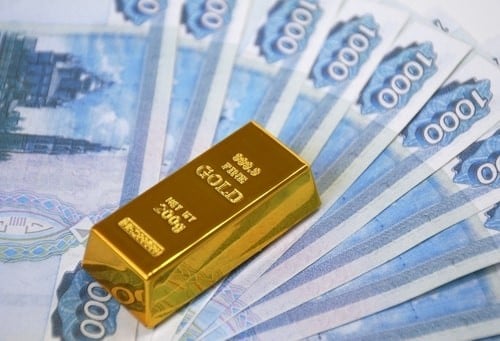 |
| Russia announces sale of tons of gold and yuan, preparing a reserve of more than $40 million per day for what? (Source: Kitco) |
The purchases took place in May and helped allocate 48.97 billion rubles ($606 million) to finance the budget deficit.
"In May 2023… part of the National Wealth Fund's finances in the accounts of the Central Bank of Russia totaling 2.59 billion yuan and 3.86 tons of gold in depersonalized form was sold for 48.967 billion rubles.
The proceeds from the sale of gold and yuan were credited to the Federal Budget Account to finance the previous deficit," the Ministry of Finance said.
Russia has reported a budget deficit of 3.4 trillion rubles (about $42 billion) in the first four months of the year, citing a more significant drop in energy revenues.
According to an analysis by the Russian Finance Ministry, lower oil and gas revenues in May were the cause of the deficit, which fell 36% year-on-year. In May, oil and gas revenues were 30.6 billion rubles ($379 million) below expectations. In June, the ministry expects a further shortfall of 44 billion rubles ($545 million) in federal energy revenues.
According to the latest data, the accounts of the National Wealth Fund of the Central Bank of Russia currently hold 9.054 billion euros, 285.7 billion yuan ($40.2 billion), 517.1 tons of gold and 228 million rubles ($2.82 million).
The National Wealth Fund, which holds Russia's oil revenues, was created to help support the pension system. The NWF is committed to supporting the pension system of the Russian Federation to ensure its long-term functioning," the Russian Finance Ministry said.
The main task of the Fund is "co-financing voluntary pension savings of Russian citizens and balancing the budget of the Federal Pension Fund".
The fund's assets held in euros, pounds and yen were frozen after US and Western sanctions were imposed on Russia since the Russia-Ukraine conflict broke out.
Back in January 2023, Russia also sold 3.6 tonnes of gold and 2.3 billion Chinese yuan from the National Wealth Fund to cover its budget deficit, due to falling oil and gas revenues, marking the first such move by the Russian central bank.
Two years ago, the Russian National Wealth Fund shed all its USD assets, increasing its holdings of gold, euros and Chinese yuan.
Earlier this year, the Russian Finance Ministry said it had doubled the limits on gold and Chinese yuan holdings in the National Wealth Fund. The new maximum holdings are set at 40% for gold and 60% for yuan. Previously, the limits were 20% and 30%, respectively.
In other news, Russia’s Finance Ministry also said on June 5 that it would increase daily foreign currency sales to the equivalent of 3.6 billion rubles ($44.3 million) per day between June 7 and July 6. The move means Moscow has calculated to create additional reserves to offset the fall in fuel revenues.
At 13:36 (Vietnam time), the Ruble stood at 80.99 Rubles per 1 USD and decreased 0.2% to 86.95 Rubles per 1 Euro, but stabilized at 11.37 Rubles per 1 Yuan.
Brent crude oil prices jumped to their highest level in more than a month in the previous session, supporting the ruble. However, in trading on June 6, Brent crude prices fell 0.9% to $76.06 a barrel.
The ruble was also supported by foreign exchange sales by Russian companies, which are raising cash to pay dividends. The market is also awaiting Russia’s interest rate decision on June 9, when the Central Bank of Russia is expected to keep its key interest rate unchanged at 7.5%.
On June 6, Russian Finance Minister Anton Siluanov said that the GDP of the Russian economy is estimated to increase by 1% in 2023. Along with that, the real income of the people is also expected to increase. Russia's GDP growth is thanks to a good budget balance, the accumulation of reserves in the National Investment Fund, proactive industrial strategies and measures to support the people.
Source





![[Photo] Prime Minister Pham Minh Chinh works with the Standing Committee of Thai Binh Provincial Party Committee](https://vphoto.vietnam.vn/thumb/1200x675/vietnam/resource/IMAGE/2025/5/12/f514ab990c544e05a446f77bba59c7d1)
![[Photo] Prime Minister Pham Minh Chinh starts construction of vital highway through Thai Binh and Nam Dinh](https://vphoto.vietnam.vn/thumb/1200x675/vietnam/resource/IMAGE/2025/5/12/52d98584ccea4c8dbf7c7f7484433af5)
![[Photo] Prime Minister Pham Minh Chinh receives Swedish Minister of International Development Cooperation and Foreign Trade](https://vphoto.vietnam.vn/thumb/1200x675/vietnam/resource/IMAGE/2025/5/12/ae50d0bb57584fd1bbe1cd77d9ad6d97)






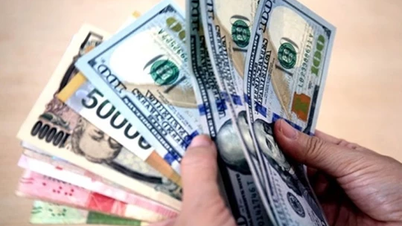
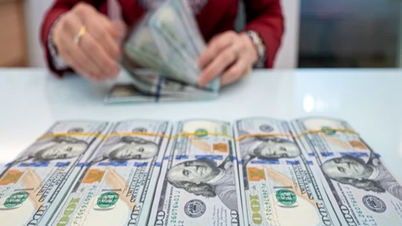
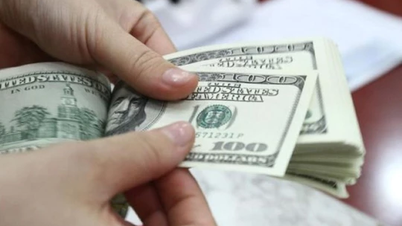


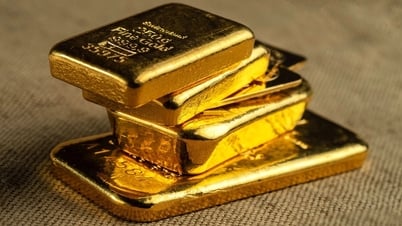

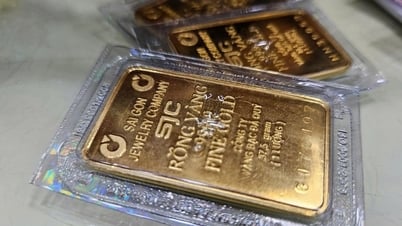





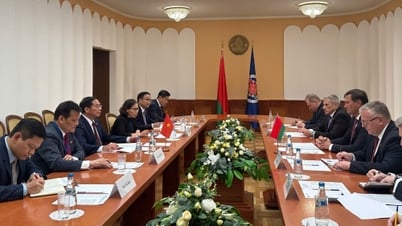



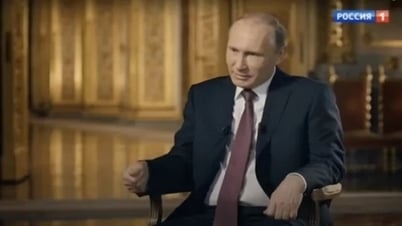



































































Comment (0)